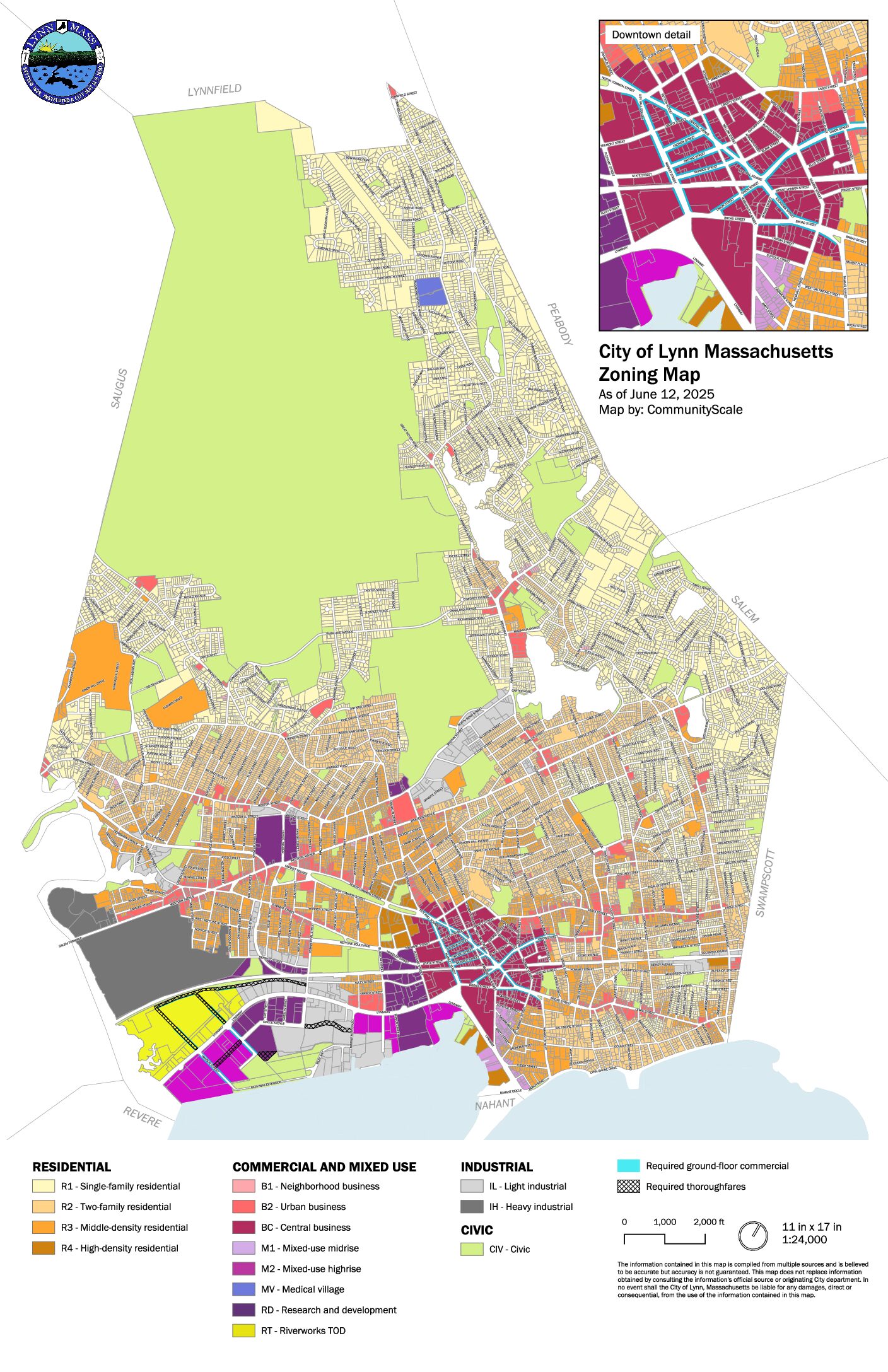LYNN — The City has officially completed its comprehensive zoning rewrite project.
The initiative came about in 2023 when the planning department worked on a plan for the city called Vision Lynn. One of its key takeaways was that Lynn’s zoning code needed to be updated.
Lynn’s zoning code was first passed in 1926, and although it has been amended many times over the years, it has never been fully redone until now.
The zoning rewrite project has been funded via a grant from the Executive Office of Housing and Liveable Communities, which allowed the City to partner with Community Scale and Levine Planning Strategies.
The new zoning ordinance was also successfully finished in collaboration with Lynn Inspectional Services, Lynn Economic and Industrial Cooperation, BBHS Law, City Council, and the Mayor’s Office.
One of the main goals of the undertaking was to make the zoning code better aligned with modern needs, and easier to read for Lynn residents and developers.
“For many homeowners, it can be very difficult to understand what’s possible for their properties or properties around them. You don’t want a zoning code that only a few people have figured out over many years of trial and error. You want something that makes sense to everybody, which makes it easier for them to invest in our city,” said Lynn Associate Planning Director Lauren Drago.
Another key element of the new zoning code is to pave the way for more housing and jobs by making it easier to establish high-quality developments.
A major change in the rewrite is the re-examining of the role of variances that were required for building adjustments. A variance is a request to the Zoning Board of Appeal to create a legal exception to allow a property owner to use their land in a manner that does not follow some aspect of the current zoning rules.
According to Drago, variances often lead to confusion for developers, unnecessary time and money for property owners, and unpredictability for their neighbors. The new plan allows for more construction to be buildable by right, reducing the need for variances overall.
“Historically, you needed a variance to do a lot of different things in the city, and part of our outcome that we’re really proud of is that you won’t need to get a zoning variance for every little thing,” Drago said.
CommunityScale Co-Founding Principal Nels Nelson described the effective approach their organization took to help complete the project.
“Legacy zoning can often create barriers to housing and investments. Lynn has taken a really proactive approach to addressing those challenges, including being open to substantial changes in the zoning map that would effectively make it easier to build new housing,” he said.
Mayor Jared Nicholson applauded the collaborative efforts of everyone involved in the initiative.
“Modernizing our zoning ordinance is a major step in shaping a more vibrant Lynn, realizing the goal of positive growth articulated in Vision Lynn. We now have a clear framework for more industrial and commercial growth while increasing transparency for residents and potential investors,” he said.
“This update strengthens Lynn’s ability to thrive in changing circumstances and helps ensure we can meet the needs of today’s residents and future generations’. We are incredibly grateful to all who provided their input and to the City departments that led this initiative,” Nicholson added.




